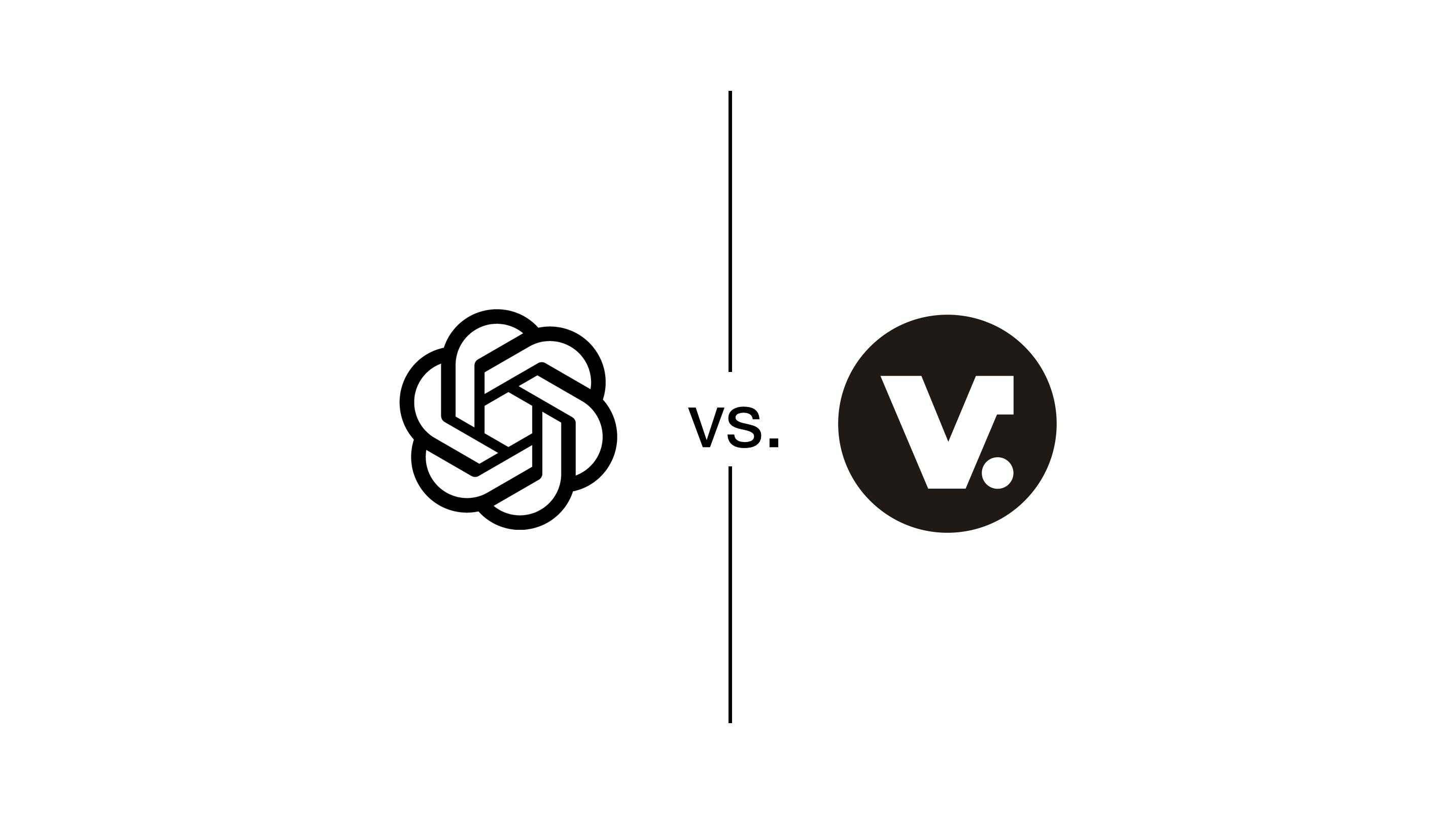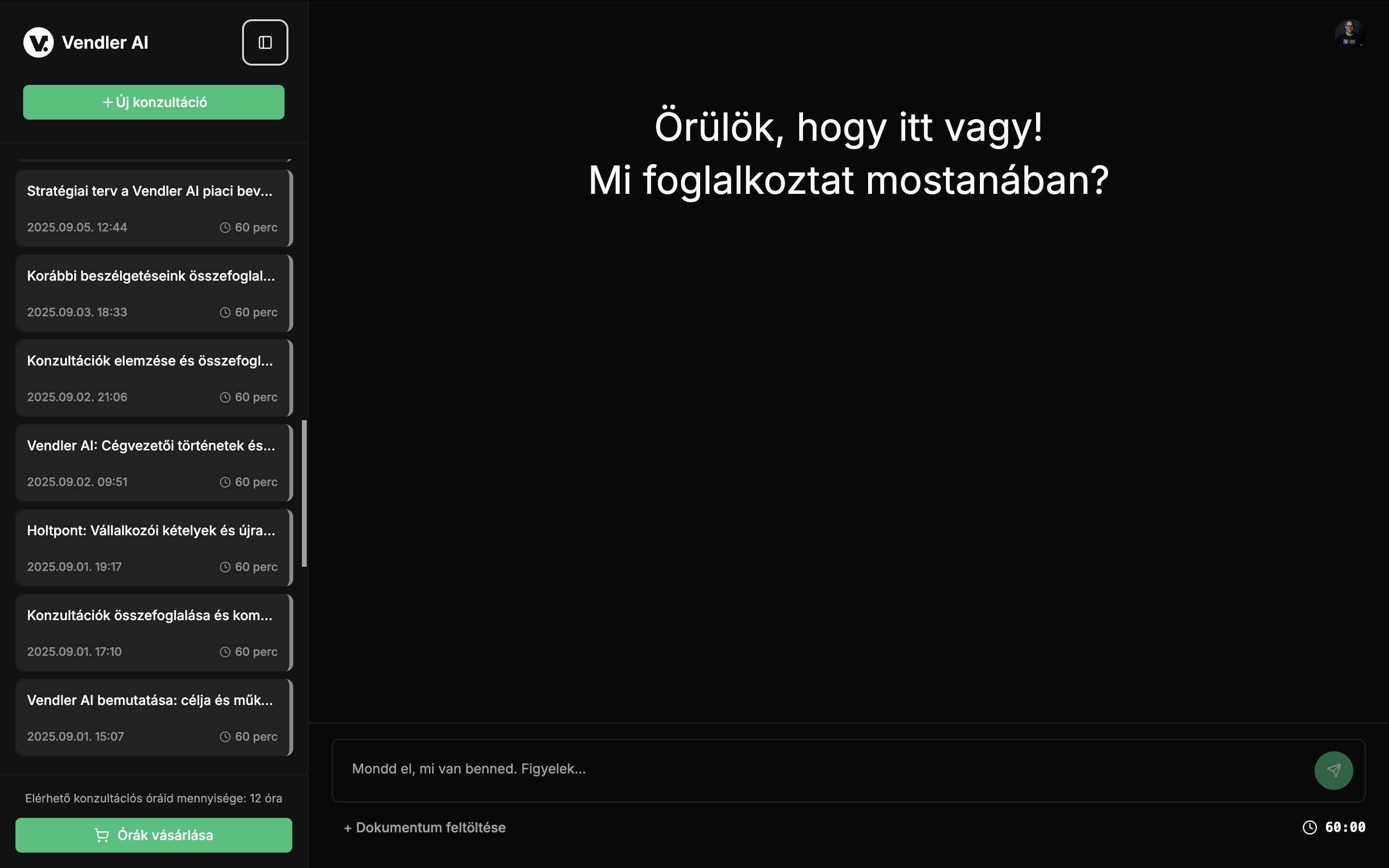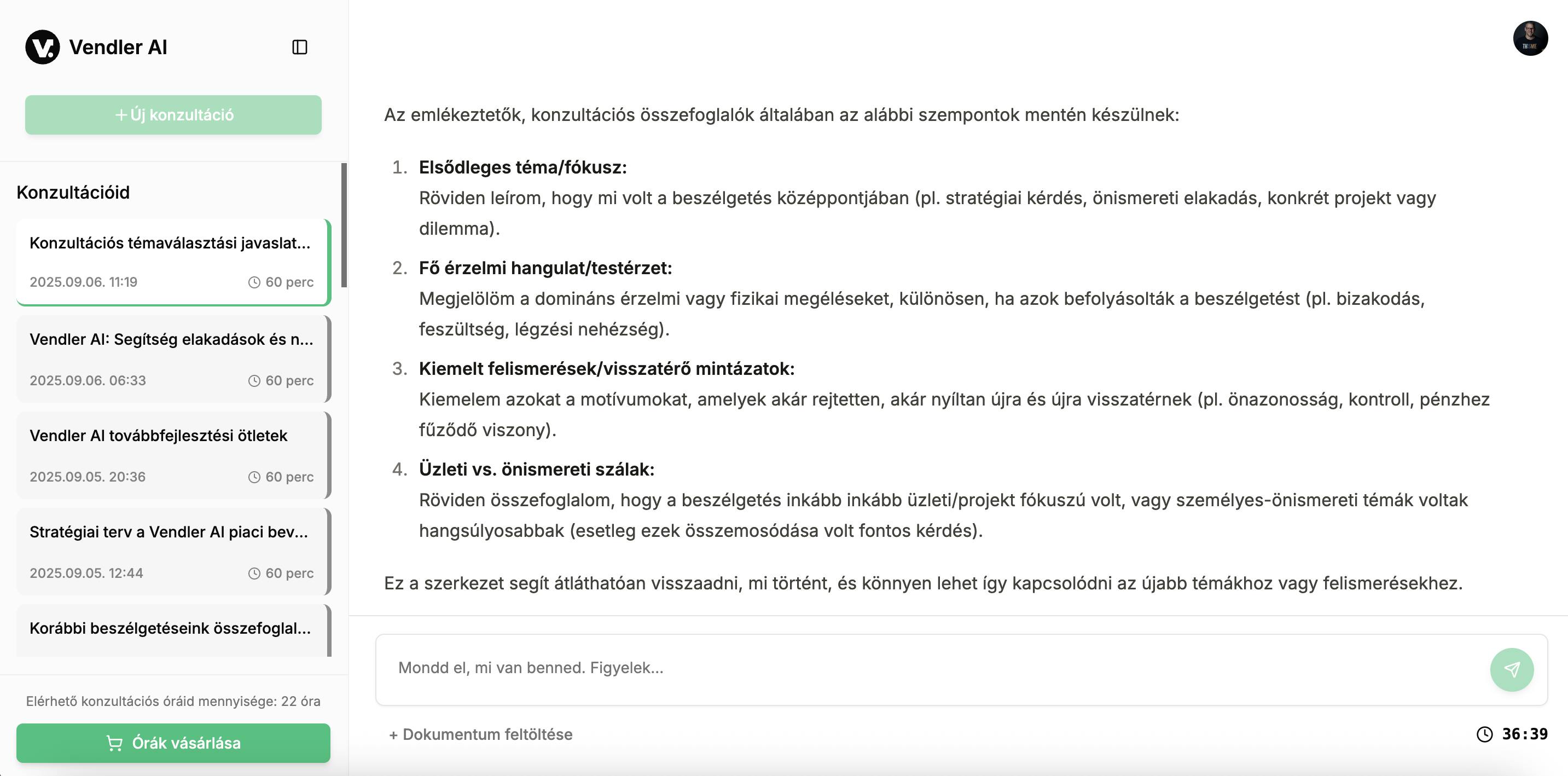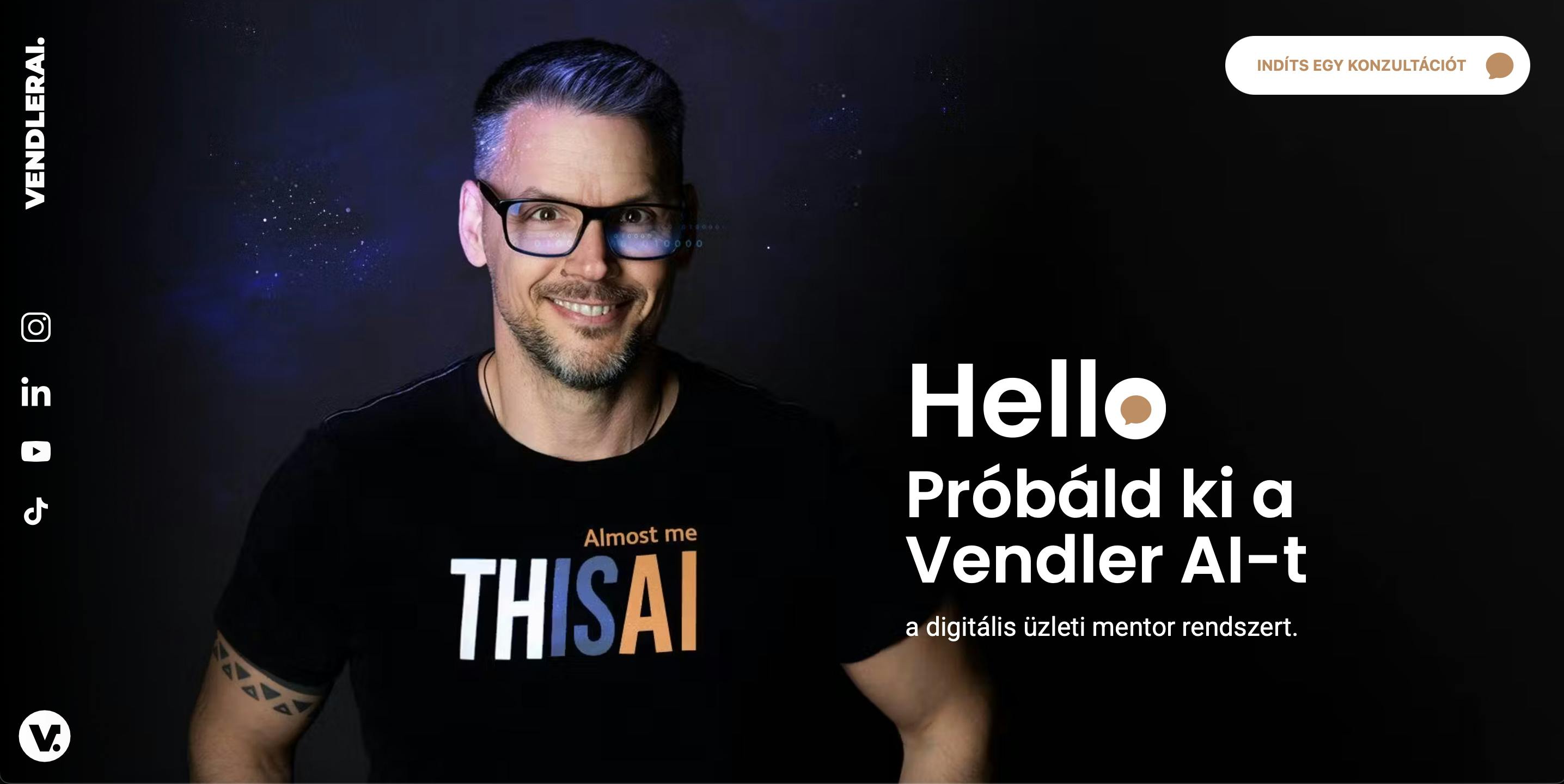
ChatGPT vs. VendlerAI
2025.09.07.
Throughout the development of VendlerAI, one question kept hovering in my mind: would I be able to create a noticeable difference between my system and the other, more popular AI platforms? Since VendlerAI runs on the OpenAI API, my first concern was: how will this be any different from ChatGPT?
That’s why, from the very beginning, I ran conversations in parallel — with VendlerAI, with ChatGPT, and with the (back then still available) Custom GPT–based VendlerAI. The first two months of development were honestly discouraging: I was nowhere near the other systems. Then, by early August, something shifted. By the end, I found myself far more eager to talk to “myself.”
Yesterday, I had a short chat with XaB about how to structure public tests during the launch period. His first suggestion: I’d definitely show a direct comparison. He’s right. Why not? So here it is: a side-by-side test using the ChatGPT Agent.
Conversation with Vendler AI
Question (business challenge): As the leader of a small business, I struggle to delegate. I feel I need to keep everything in my own hands because I’m afraid my team won’t do the work properly. This is holding back growth. What could be the inner cause of this?
Vendler AI response: The assistant referred back to earlier conversations and highlighted that the difficulty in letting go of control often stems from fear and self-esteem issues. It didn’t judge; instead, it asked how I feel in this situation, and what the “worst-case scenario” would be if a task wasn’t done perfectly. It specifically suggested analyzing the underlying beliefs, e.g., “I’m not good enough,” and encouraged me to choose one thread I’d like to work on further.
Second question: I shared my actual feelings (tension, uncertainty, a childhood-ingrained belief that “if you want it done right, do it yourself”) and asked how to let go of this belief.
Vendler AI response:
It acknowledged that logically I already see the misconception — that flawless work equals success — but emotionally the layer is still strong. It pointed out that delegation isn’t just a professional matter, but tied to feelings of acceptance and lovability. Then it offered three practices:
- Awareness – when the “I’ll do it myself” impulse arises, pause and recognize it as an old pattern.
- Experimental letting go – choose a small, low-risk task, delegate it, agree in advance that mistakes are allowed, and observe how I feel.
- Reframing results – after delegating, write down how the task turned out and whether I felt any relief.
It then offered to help me pick a concrete situation I could try out in the coming days.
The description on vendlerai.com confirms this: the system is built on the real stories and dilemmas of over 200 Hungarian entrepreneurs, not textbook cases. Its aim is to give new perspectives and help users move closer to themselves. Feedback highlights that Vendler AI doesn’t hand out ready-made answers but rather “creates a space for thinking” and reflects back the user’s real questions.
Same problem with ChatGPT
When I posed the same problem to ChatGPT, I got the following types of answers (summarized):
First answer: ChatGPT pointed out that difficulties with delegation often stem from perfectionism, lack of trust, and the need for control. It suggested starting with small steps: delegate gradually, give clear instructions, build trust with feedback, and reflect on the origins of the “if you want it done right, do it yourself” attitude.
Second answer: After I shared the childhood roots of the belief and a concrete example, ChatGPT praised the self-reflection and encouraged me to reframe my inner monologue (“I can safely entrust tasks to others”) and build a delegation habit with small, well-defined tasks. It also mentioned that working with a coach or therapist could help if deeper self-work was needed.
Comparison
Psychological depth: Vendler AI focused on mapping personal beliefs, raising emotional awareness, and exploring their origins. It asked follow-up questions (“How do you feel?” “Can you imagine being successful even with others’ mistakes?”) and suggested self-reflection exercises. This style matches its self-knowledge focus: it doesn’t hand out solutions, but creates thinking space.
ChatGPT gave more rational advice: it described general causes (perfectionism, trust issues, control) and outlined practical steps (gradual delegation, communication rules, expert support). While it recognized childhood beliefs, its response was less dialogical, more instructive.
Communication style: Vendler AI used a personal tone, guiding my thinking through questions and checking multiple times which direction I wanted to go. Its language was empathetic (“I hear that…” “This might be a breakthrough point…”) and the conversation felt experiential; answers were longer, nuanced, reflective.
ChatGPT’s replies were more like structured advice, focused on problem-solving rather than unpacking inner experiences. Responses were shorter, more general, and leaned on suggestions rather than questions.
Impact: Vendler AI’s practices aimed at working through inner beliefs and processing feelings — a path toward long-term self-awareness and change.
ChatGPT focused on developing delegation skills and rational strategies — useful for immediate, practical advice.
In summary: The dialogue with Vendler AI felt more personal, touching deeper, more inner processes, while ChatGPT gave more practical, advisory answers to the same entrepreneurial problem.






